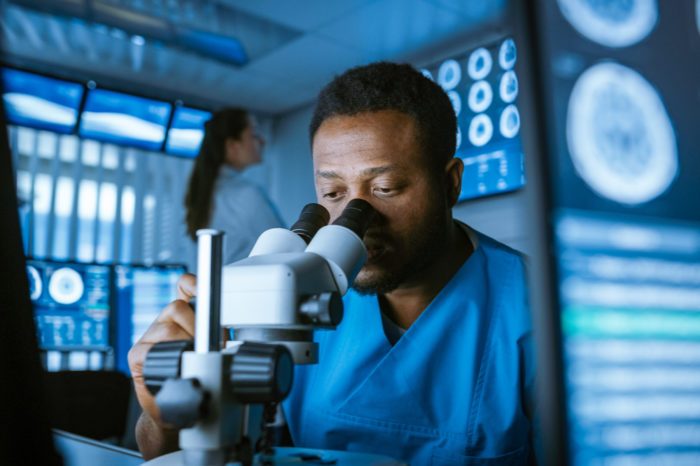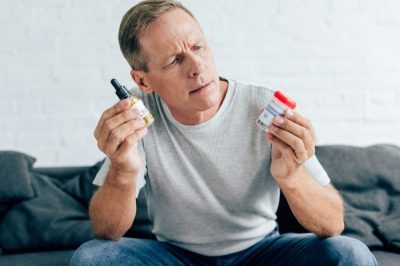A new clinical trial suggests that CBD administration could lead to a more successful organ transplant.
According to the American Transplant Foundation, on average, almost 114,000 people in the U.S. are currently waiting for a lifesaving organ transplant. However, an average of twenty people die every day due to lack of availability. And even getting a transplant doesn’t guarantee it will be successful. Organ and tissue transplants are tricky business, and rejections can be deadly.
For instance, in the case of bone marrow transplants, it’s possible for a patient to become afflicted with an immune condition called graft versus host disease (GVHD). This condition occurs when immune cells from the donor attack the tissues of the transplant recipient. GVHD can be mild or severe — but as it can be life threatening, scientists are actively searching for innovative treatment strategies that can prevent tissue and organ rejection.
Current treatment strategies include aggressive immunosuppressant medications such as cyclosporine and methotrexate. These pharmaceutical medications work to suppress all immune system activity in the patient, and by doing so help to ensure a successful transplant. But what if cannabinoids could help?
Cannabis as an Immune Suppressor
We now know that cannabis contains both anti-inflammatory and immunosuppressant qualities. Science has discovered that cannabis can reduce inflammation by interacting with the endocannabinoid system. By affecting endocannabinoid receptor signaling, cannabinoids can modulate the production of pro- and anti-inflammatory cytokines, among other enzyme activity.
Cannabis also lowers inflammation by suppressing the immune system. Cannabinoids do so by activating receptors involved in immune system functioning. A study published in Clinical Endocrinology and Metabolism (2009) found that THC can have an immunosuppressive effect in vitro and in vivo.[1]Pisanti, Simona, et al. Use of Cannabinoid Receptor Agonists in Cancer Therapy as Palliative and Curative Agents. Best Practice & Research Clinical Endocrinology & Metabolism, Baillire … Continue reading
And another study published in The Journal of Pharmacology and Experimental Therapeutics (2011) discovered that THC could be effective in preventing GVHD. This is an important finding, since such treatment could increase the survival rate of patients undergoing transplant procedures.[2]Pandey, Rupal, et al. Targeting Cannabinoid Receptors as a Novel Approach in the Treatment of Graft-versus-Host Disease: Evidence from an Experimental Murine Model. Journal of Pharmacology and … Continue reading

Transplant Complications
Complications from GVHD cause T cells from the donor to recognize mismatched histocompatibility antigens, causing a toxic reaction. This can lead to transplant rejection. In this study, scientists tested THC on donor-derived T cells. In their experiment, THC blocked host immune cells from being killed, encouraged the body’s recovery from weight loss, and reduced tissue injury. These actions were made possible by THC’s ability to interact with endocannabinoid receptors CB1 and CB2.
And while CBD does not bind to CB1 and CB2 receptors, it has also shown an ability to reduce inflammation and suppress the immune system. By reducing production of pro-inflammatory cytokines and encouraging the proliferation of anti-inflammatory cytokines and mediators, studies have shown that it could help ease conditions like Multiple Sclerosis, rheumatoid arthritis, and inflammatory bowel disease.
Clinical Trial Supports Cannabinoids for a Successful Transplant
The possibility for cannabinoids to prevent GVHD is an exciting one. And with these experimental observations, scientists conducted a phase II clinical trial, where they assessed the safety and efficacy of CBD on human patients.
In the study, published in Biology of Blood and Marrow Transplantation (2015), researchers observed forty-eight adult patients. Each were given a standard GVHD treatment of cyclosporine twice a day, along with a short course of the pharmaceutical methotrexate. They were also treated with CBD, which was administered via infused olive oil. The dose was 150 milligram and it was also administered twice a day.[3]Yeshurun, Moshe, et al. Cannabidiol for the Prevention of Graft-versus-Host-Disease after Allogeneic Hematopoietic Cell Transplantation: Results of a Phase II Study. Biology of Blood and Marrow … Continue reading
The CBD treatment began seven days before the patients underwent their transplant procedures, and they continued the regimen for thirty days after. And the results were fascinating.
Researchers discovered that by adding CBD to the standard pharmaceutical treatment plan, they were able to lower the risk of transplant failure. After a sixteen month review, scientists found that none of the patients developed acute GVHD while taking CBD. In fact, they only developed the disease after ceasing CBD supplementation. GVHD came on later than usual as well. Instead of starting at twenty days, it started at sixty days.

Future Considerations for Cannabinoid Treatment
The successful transplant results from the phase II study are encouraging, to say the least. And furthermore, researchers noted that CBD has a favorable safety profile. The patients in the study tolerated it well, along with their concurrent medications. The authors wrote, “The combination of CBD with standard GVHD prophylaxis is a safe and promising strategy to reduce the incidence of acute GVHD. A randomized double-blind controlled study is warranted.”
The next step in this important research is to further support the data that suggests cannabinoids could help ensure a successful transplant. If future trials continue to support cannabinoid therapy, the survival of patients undergoing organ and tissue transplants could significantly increase. This could be a game-changing discovery that ups the likelihood of successful transplant while reducing mortality rates and benefiting the quality of life of transplant patients.
References





